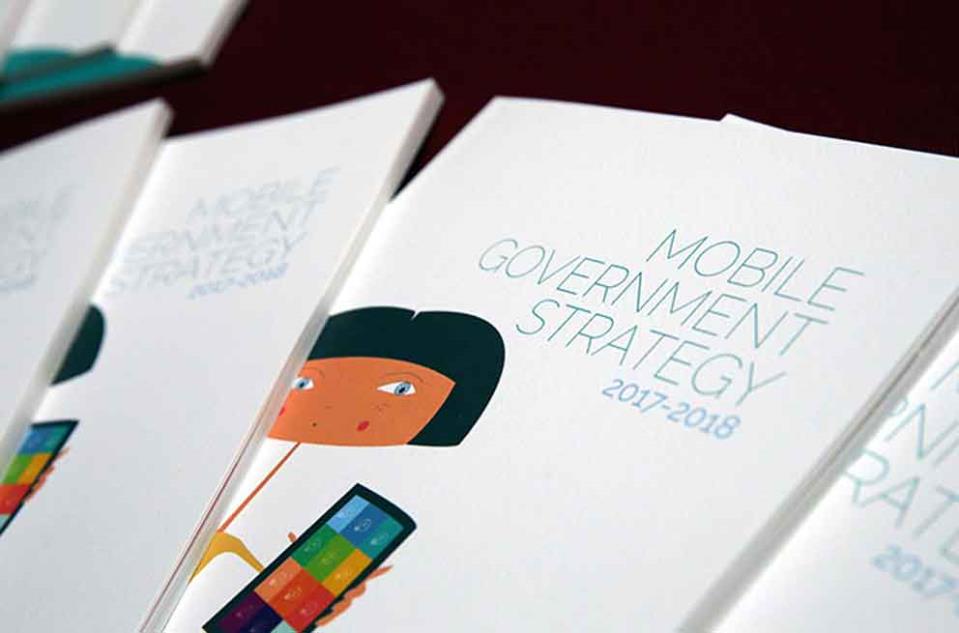Written by Mark Bartolo, MITA Enterprise Architect - ICT Policy
On Monday 21st November, the Principle Permanent Secretary launched the Mobile Government Strategy for 2017-2018. This strategy puts forward the Government's plans for the provision of public services over mobile devices (mServices) for the next two years and is another building block in the achievement of the ultimate vision of providing access to 24x7 public services from anywhere.
Haven't we heard this all before? Well, yes... and no.
eGovernment services have been with us for a number of years. These had also heralded the promise of the availability of public services at any time. Through the eGovernment program, Malta has in fact fared very well internationally in the provision of digital services, both in terms of their number and diversity. However, these were largely intended and designed to be accessed and consumed on personal computers and laptops, which meant that "any time" was any time that one was seated at a PC or laptop. Since then, the use of mobile devices has increased rapidly and the prevalence of mobile subscriptions per capita in Malta is now more than triple the number of fixed broadband connections.
Therefore, the mobile channel opens up the possibility of reaching a greater number of individuals across a wider spectrum of ages and walks of life. The fact that mobile devices are carried around in people's pockets gives new meaning to "any time" and, further, adds the dimension of "anywhere", making 24x7 public services far more realistically achievable.

Mobile Government is not intended to replace existing forms of service provision, such as over-the-counter or eGovernment, but is the next natural step in their evolution and supplements them by providing an alternative, more accessible channel. Software tools, typically mobile apps, shall be made available for use on individuals' mobile devices, thus placing access to public services right into citizens' hands. But although the technology may be the most obvious component from the consumers' perspective, it is but the tip of the iceberg that is the Public Service Renewal Program, driven by the Office of the Principal Permanent Secretary in the Prime Minister's Office, which aims to achieve higher levels of excellence in the provision of public services by, amongst other things, reducing bureaucracy. For Mobile Government to succeed, the Public Administration shall also need to streamline its processes and revisit its organizational structures, as well as introduce any new working practices with associated training and skills-building that are necessary to bring about the transformation envisioned by the renewal program.
It is generally possible to classify mServices into one or more of four categories: mCommunications deals with two-way communication of Government with citizens and businesses; mTransactions handles transactional services, including payments that may require user identification; mDemocracy further increases citizen participation in political decision making while mAdministration introduces mobile-based tools for public officers to increase their mobility and facilitate personalised public services on location.
Following on from the Mobile Government paradigm, the next projected step in the progression of public services is the once-only provision of information by citizens and businesses. Although not strictly addressed by this strategy, this principle is being presented as a target for further improvement in the delivery of 24x7 public services.

The launch of the Mobile Government Strategy was accompanied by the soft launch of a number of mServices. These are the first wave of public services to exploit the mobile channel and focus on the mCommunications category. They are also serving to present a new approach to introducing public services by making their associated mobile apps available to dedicated focus groups for beta testing. In this way, interested stakeholders are being involved in the development process from its initiation. The feedback gained from this exercise will be used to improve these services before their official launch for public use in March 2017. This deployment model shall also be used for the second phase of delivery that shall see mServices being introduced in the mTransactions category for beta testing by December 2017 and official launch in March 2018. By December 2018, the final set of mServices covered by this strategy, this time addressing mDemocracy and mAdministration, shall be delivered, accompanied by a revision of the strategy for the next period.
The Mobile Government initiative is supported by the Malta Information Technology Agency (MITA). MITA has actively contributed towards the articulation of the Strategy and related consultation exercises and is overseeing the technical implementation of the resulting mobile apps. The Mobile Government Strategy is currently available on the MITA portal at http://mita.gov.mt/en/News/Documents/MOB STRATEGY SML.PDF